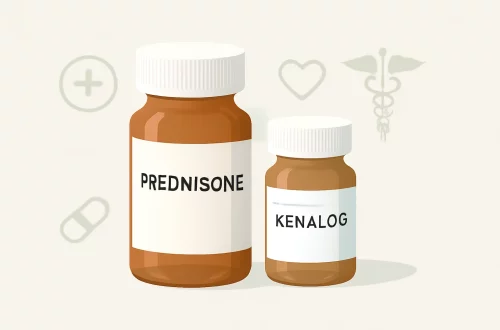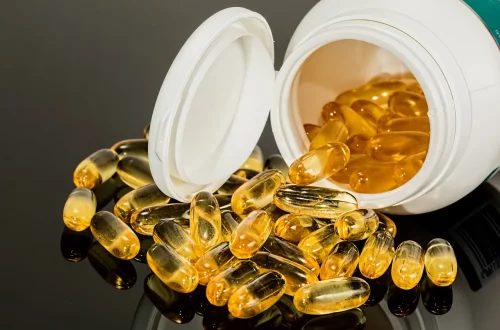
Best Treats for Dogs with Kidney Disease to Promote Health and Wellbeing
As pet owners, we are often faced with the challenge of ensuring our furry companions remain healthy and happy, especially when they are diagnosed with specific health issues. One such condition that can affect our beloved dogs is kidney disease. This ailment can significantly impact their quality of life, necessitating careful dietary choices to manage symptoms and improve overall wellbeing. The kidneys play a crucial role in filtering waste from the blood, regulating electrolytes, and maintaining hydration. When they are compromised, it can lead to a myriad of health problems, making it essential for pet owners to pay close attention to their dog’s nutritional needs.
When considering the best treats for dogs with kidney disease, it is vital to choose options that are not only palatable but also beneficial to their health. Treats can be a great way to provide positive reinforcement, keep your dog engaged, and add some variety to their diet. However, the right treats can also help support kidney function, manage symptoms, and enhance overall wellbeing. While it may seem daunting to select the appropriate snacks, understanding the nutritional requirements and preferences of dogs with kidney disease can simplify the process. This article aims to explore various treat options that cater to the unique needs of these dogs, ensuring they receive the care and enjoyment they deserve despite their health challenges.
Understanding Kidney Disease in Dogs
Kidney disease in dogs can be either acute or chronic, each presenting its own set of challenges. Acute kidney disease arises suddenly and can often be attributed to factors such as toxins, infections, or dehydration. On the other hand, chronic kidney disease (CKD) develops gradually over time, commonly affecting older dogs and often resulting from age-related degeneration or underlying conditions.
Recognizing the symptoms of kidney disease is crucial for early intervention. Common signs include increased thirst and urination, decreased appetite, lethargy, vomiting, and bad breath. If you notice any of these symptoms, it’s essential to consult a veterinarian for proper diagnosis and treatment options.
The kidneys perform several vital functions, including filtering waste products from the bloodstream, balancing electrolytes, and regulating blood pressure. When kidney function declines, waste products build up in the bloodstream, leading to a host of complications. Therefore, managing a dog’s diet becomes paramount in supporting kidney health.
When it comes to feeding dogs with kidney disease, it is often recommended to adjust their diet to lower protein levels, as high protein intake can exacerbate the condition. However, it’s important to note that not all proteins are created equal. High-quality, easily digestible proteins should be favored over lower-quality sources. Additionally, phosphorus and sodium levels should be monitored, as excessive amounts can further strain the kidneys.
In summary, understanding the intricacies of kidney disease in dogs is the first step in managing their health. By recognizing the symptoms and adjusting dietary needs, pet owners can significantly enhance their dog’s quality of life.
Choosing the Right Treats for Kidney Health
Selecting the right treats for dogs with kidney disease requires a thoughtful approach. Treats should be low in protein, phosphorus, and sodium, while still being appealing to your dog’s palate. A good starting point is to consult with your veterinarian, who can provide guidance tailored to your dog’s specific health needs.
Homemade treats are an excellent option for pet owners who want full control over their dog’s diet. Simple recipes can be made using ingredients that are safe for dogs with kidney disease. For example, treats made from pureed pumpkin, sweet potatoes, or certain fruits like apples and blueberries can provide a tasty alternative without putting undue strain on the kidneys. Always ensure that fruits are served in moderation and that any seeds or toxic components are removed.
Store-bought treats can also be an option, but it’s crucial to read labels carefully. Look for products specifically designed for dogs with kidney issues, as these will typically have adjusted nutrient levels. Many brands offer low-protein or renal-friendly treats that can support kidney health while still being delicious for your pup.
Another aspect to consider is the size and texture of the treats. Dogs with kidney disease may experience oral sensitivity or discomfort, making softer treats a preferable choice. Additionally, smaller treats can be beneficial for training purposes, allowing for frequent rewards without overloading on calories or nutrients.
Ultimately, the goal is to find treats that provide enjoyment without compromising your dog’s health. By prioritizing quality and nutritional value, you can help your dog maintain a balanced diet while indulging in tasty snacks.
Homemade Treat Recipes for Dogs with Kidney Disease
Creating homemade treats for dogs with kidney disease can be a rewarding experience, allowing you to tailor ingredients to suit your dog’s specific health requirements. One simple and nutritious recipe involves baking sweet potato chews. Sweet potatoes are not only tasty but also rich in vitamins, fiber, and antioxidants, making them an excellent option for dogs with kidney issues.
To create sweet potato chews, start by washing and peeling a sweet potato. Cut it into thin slices, about a quarter-inch thick. Preheat your oven to 250°F (120°C) and place the slices on a baking sheet lined with parchment paper. Bake for approximately two hours, flipping the slices halfway through, until they are dehydrated and chewy. Allow them to cool before serving.
Another delightful recipe is for pumpkin and oat cookies. Mix one cup of pureed pumpkin (ensure it’s plain pumpkin, not pie filling) with one cup of oats and a small amount of cinnamon. Form the mixture into small balls and place them on a baking sheet. Bake at 350°F (175°C) for about 20 minutes or until they are firm. These treats are not only easy to make but are also low in protein and packed with nutrients.
When making homemade treats, always keep in mind any specific restrictions your dog may have. It’s crucial to introduce new foods gradually and monitor for any adverse reactions. Homemade treats can be a fantastic way to bond with your pet while ensuring they receive tasty, kidney-friendly snacks.
Commercial Treats and What to Look For
If making homemade treats isn’t feasible for you, there are numerous commercial options available designed specifically for dogs with kidney disease. When choosing these products, it’s essential to prioritize quality and transparency in ingredients.
Start by looking for treats labeled as “renal” or “kidney-friendly.” These products are formulated to meet the unique nutritional needs of dogs suffering from kidney disease. Check the ingredient list for high-quality protein sources, and ensure that the treats are low in phosphorus and sodium.
Additionally, consider the calorie content of the treats. Dogs with kidney disease may require a more controlled calorie intake, and high-calorie treats can contribute to weight gain, which can further complicate their health. Opt for treats that provide nutritional benefits without excessive calories.
It’s also wise to consider the palatability of commercial treats. Some dogs may have altered taste preferences due to their health condition, so it may take some experimentation to find treats that your dog enjoys. Look for products that come with a satisfaction guarantee, allowing you to return them if your dog does not like them.
Lastly, customer reviews can provide valuable insights into the effectiveness and taste of the treats. Reading testimonials from other pet owners can help you make an informed decision and choose the best snacks for your furry friend.
In conclusion, providing treats for dogs with kidney disease requires a careful balance of nutrition and enjoyment. Whether opting for homemade or commercial options, prioritizing kidney-friendly ingredients can significantly enhance your dog’s quality of life.
**Disclaimer:** This article is for informational purposes only and should not be considered medical advice. Always consult your veterinarian regarding your pet’s health and dietary needs.




